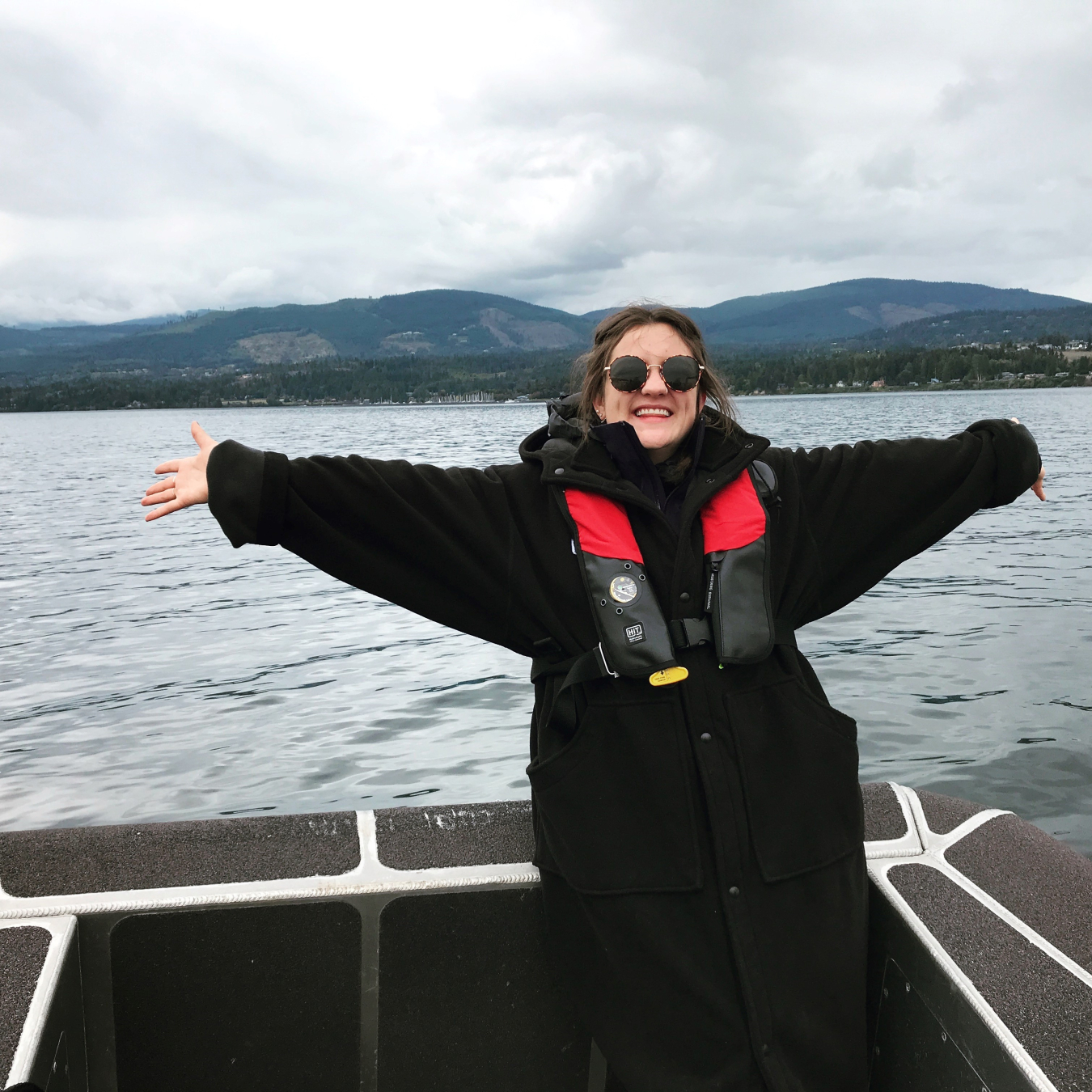Learn why Carrie Schmaus loves her job as a ORISE Science, Technology, and Policy Fellow at the Water Power Technologies Office.
August 14, 2019
Carrie Schmaus is an ORISE Science, Technology, and Policy Fellow at the Water Power Technologies Office (WPTO) at the U.S. Department of Energy (DOE) and a 2018 Young Professional Leader in the International Electrotechnical Commission (IEC). Before spending a year with WPTO as a NOAA Knauss Marine Science and Policy Fellow in 2018, she worked as a research fellow at the National Council for Public-Private Partnerships, a DC-based non-profit that supports successful public-private partnership models. She graduated with her master’s from the School of Marine and Environmental Affairs at the University of Washington after graduating Phi Beta Kappa from Wittenberg University with a BS in biology and a minor in marine science.
What inspired you to work in STEM?
I’ve always had a fascination with how things work and loved the ocean, so studying marine biology was a natural choice, though I think the real credit lies with my parents, teachers, and professors, who always encouraged me to ask questions and be curious. I was lucky to have a supportive network and situation that allowed me to focus on school, pursue my interests, and ask for help when I needed it.
What excites you about your work at the Energy Department?
The Energy Department is on the forefront of innovation for emerging sources of renewable energy. I love going to work every day and feeling like I am contributing to the greater good. Additionally, I am fortunate to work with a wonderful group of motivated people who encourage and support each other – we have a great team, and we all keep each other excited about our work. In a single day, I might have a conversation about marine renewable energy on other planets, think about how to leverage innovative funding mechanisms to most effectively advance the field, talk to some of our nation’s premier scientists at one of our National Labs, and plan my next international trip to meet with marine renewable energy experts across the globe. It is a very exciting role!
How can our country engage more women, girls, and other underrepresented groups in STEM?
At the national level, the United States should invest in education for all people and ensure resources are allocated to communities that do not yet have access to basic educational infrastructure. If we give people an opportunity to succeed, I truly believe most of them will take it. General media should also show a variety of kinds of people in different scientific roles – the days of the white-haired “mad scientists” are over!
On an organizational level, managers and program-level staff alike should recognize the value of a diversity of opinions and worldviews and employ a wide variety of people. Beyond being more representative of society, a diverse workforce makes an organization better at evolving and staying relevant in a fast-paced world.
At a personal level, support and encourage young people to pursue STEM careers, either by giving them helpful advice, making them aware of all the opportunities that exist for them, and/or acting as a role model. It’s incredibly important for young people to envision themselves in STEM roles, and that only happens when they see other people that look like them succeeding. We, as a society, have to empower young people to imagine great achievements and then give them the tools to succeed.
Do you have tips you'd recommend for someone looking to enter your field of work?
Energy is incredibly diverse and interdisciplinary, so experts from almost any discipline can make an impact in this field. Within DOE, marine biologists, like me, could work in marine renewable energy, while a lawyer could work in the Office of General Council and make sure DOE’s activities comply with the law. Economists help the agency make decisions that are practical and sustainable. Communicators are the unsung heroes of DOE – how we communicate our work directly impacts other parts of the government and reaches our most important audience: the taxpayers. I would recommend that people interested in energy think about the core aspect of energy that excites them – the innovation, the fact that billions of people’s lives would be negatively impacted without it, national security – and find a position that lets them explore that passion. The best way to do this is to talk to people in the industry to get a sense of what keeps them going back to work every day.
When you have free time, what are your hobbies?
I love making dinner with friends, seeing live music, and playing ultimate frisbee on the National Mall with my frisbee team. I’m also learning how to play the mandolin, and I really enjoy curling up with a hot cup of coffee and a good book.
Learn more about our programs & resources for women and girls in STEM at http://www.energy.gov/women

